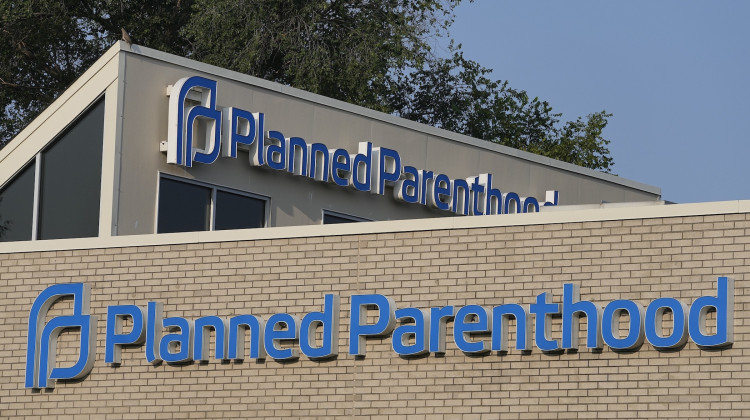
Eli Lilly's Corporate Headquarters in Indianapolis. The company announced initial findings from Phase 2 of the COVID-19 antibody treatment showing a reduction in hospitalizations.
Lauren Chapman/IPB NewsIndianapolis-based Eli Lilly has requested emergency use authorization, from the Food and Drug Administration, for its COVID-19 single antibody treatment.
Lilly’s request comes after the company’s second round of the antibody drug trials showed a lower hospitalization rate for those who had been treated after testing positive for COVID-19. These patients also showed lower levels of the virus in their systems after the combination antibody treatment. After 11 days, patients’ viral load was significantly reduced.
The company plans to request a EUA for a combination antibody treatment in November as well. This will depend on clinical trial enrollment, accumulation of additional safety data and a sufficient supply of the drugs are manufactured. The combination treatment is similar to part of the treatment President Donald Trump received last week.
Lilly chairman and CEO Dave Ricks says the company has communicated with government officials trying to deliver treatment options to the public.
“We do agree with many that during a pandemic, and during a situation where we will likely have more demand than supply, unfortunately,” he said, “It’s best to partner with the government to ensure a fair allocation within the country.”
Lilly has yet to have the data peer-reviewed. The company also plans to conduct an open-label study, where participants are aware of treatment they are receiving, in the coming weeks. This study will focus on collecting data regarding hospitalizations, deaths and safety of patients that received either the single or combination antibody treatment.
The company plans to have 100,000 doses of the drug by the end of the October, if the request is approved by the FDA, they plan to produce 1 million by the end of 2020.
Contact reporter Bárbara at banguiano@lakeshorepublicmedia or follow her on Twitter at @radiospice219.
 DONATE
DONATE




 View More Articles
View More Articles

 Support WFYI. We can't do it without you.
Support WFYI. We can't do it without you.